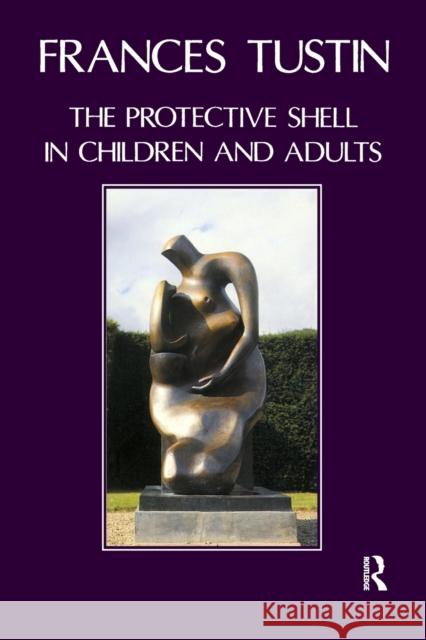The Protective Shell in Children and Adults » książka
The Protective Shell in Children and Adults
ISBN-13: 9780946439812 / Angielski / Miękka / 1990 / 256 str.
The Protective Shell in Children and Adults
ISBN-13: 9780946439812 / Angielski / Miękka / 1990 / 256 str.
(netto: 208,57 VAT: 5%)
Najniższa cena z 30 dni: 203,14
ok. 16-18 dni roboczych.
Darmowa dostawa!
The Protective Shell in Children and Adults does not propose a 'cure' for autism. Rather, it suggests that psychotherapeutic treatment which is based on a deep understanding of the function of autism can modify and heal the overwhelming need for this powerful inbuilt survival reaction, so that it is used appropriately in a less overall and crippling way.This work is by a professional primarily for other professionals, but thoughtful people who are interested in the fundamental aspects of human nature will also find much to interest them. The papers which have been published in various journals or delivered to professional audiences since the appearance of Francis Tustin's previous book Autistic Barriers in Neurotic Patients are integrated with unpublished material written especially for this book, so that they can enrich and illuminate each other. A paper from the early days of her work with autistic children is the focus of this present work, since her awareness of encapsulation as being the major protective reaction associated with the autistic states of both psychotic and neurotic patients, has stemmed from that early paper.Her theme in this book concerns the protective and preservative aspects of the type of autism which seems to be mainly psychogenic in origin, although there may be a minimal organic and hormonal disturbances. Particularly valuable is her attempt to clarify the specific differential characteristics of this disorder. Based on this clarification, the functions and handicaps that are unique to 'Psychogenic' autism are discussed, and their sources pinpointed.Mrs Tustin adds to our understanding of autistic children, and the autistic capsule in neurotic adult patients, by showing that the autistic recourse to what she calls autistic sensation objects and autistic sensation shapes has handicapped cognitive, social and emotional development, which are shown to be intertwined. Here is a contribution from detailed psychotherapeutic work with autistic children, and the autistic capsules in neurotic adult patients, which not only help us to understand their tragic handicaps, but also throws light on certain details of the elemental levels of normal psychological development which they have missed. It is a kind of micro-psychology.











